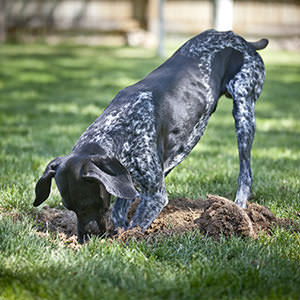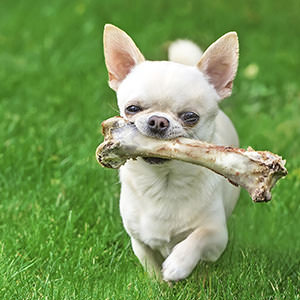Long before dogs became domesticated household pets, they were wild animals not much different from wolves. They hunted in packs and this way of obtaining food had its advantages.
They would send scouts out in many different directions to find food, and when they would finally corner the animal, their sheer numbers could often bring down a much bigger prey.
If the pack managed to bring down a buffalo, for instance, it would be too much of a feast even for a larger pack.
They might not be able to eat all of the nutrients available, and they did not want to share their hard work with other scavengers. So, when there was too much food, or even when the pack had cleaned the prey down to the bones, the wild dogs knew they had to save some of the food for a rainy day.
But why burying it? It is simple actually. The claws and paws of dogs are well suited for digging, and over thousands of years they learned that burying the bones of their prey would prevent other animals, or even other dogs from the pack, from taking their food away.
You’re probably thinking “but bones are not that nutritious.” And you are right, they’re not, but the meat that is left on them and the marrow inside the bone was often enough to sustain a wild dog through the hard periods when the food was scarce.
Not only did burying the bones make harder for others to find, but it cloaked the smell and kept it out of the air and sunlight, thus slowing down the spoilage.
If your pooch is fed sufficiently, it is less likely he/she would revert to their ancient genetic behavior and hoard their food.
Some breeds are more prone to this behavior than others, and some dogs may hide food and bones and never go back to them, because the behavior to prepare for lean times is still strong in them, but the lean times never come.
Plastic bones, toys or even nesting materials can trigger this behavior, which is why they often “steal” your clothes, towels or shoes. So, the next time your shoe is missing, don’t blame it on your pooch, blame it on its ancestors. It’s in their blood.


